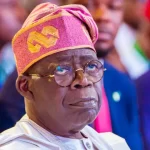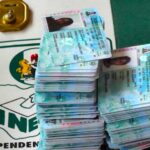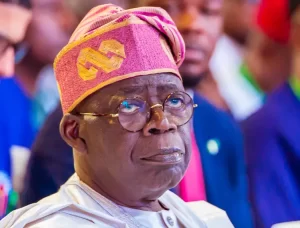House of Reps summon CBN governor to explain reasons he lifted FX ban on 43 items
The Nigerian House of Representatives has issued a formal summons to Yemi Cardoso, Governor of the Central Bank of Nigeria (CBN), to elucidate the rationale behind the recent decision to remove foreign exchange restrictions on 43 specific items.
Cardoso is scheduled to appear before the House Committees on Regulatory Banking, Finance, and Customs in response to this summons.
This resolution to compel the presence of the CBN Governor was passed during a legislative session on Tuesday, following the endorsement of a motion brought forth as a matter of urgent public importance. The motion was put forth by Sada Soli, a member of the House representing Kaita/Jibia Federal Constituency of Katsina State.
In a significant policy shift, the central bank, on Thursday, October 12, lifted restrictions on the use of foreign exchange (FX) for the importation of 43 specific items. These restrictions had been in place since 2015 and encompassed a variety of goods, including rice, cement, palm oil products, and various steel items, among others.
Originally, these FX restrictions were put in place to manage the country’s limited foreign exchange reserves and protect local industries by raising the cost of importing these items, making them less competitive when compared to locally produced alternatives.
Nonetheless, experts are of the opinion that the decision to remove FX restrictions on these 43 items could help alleviate pressure on the unofficial black market for foreign exchange and boost liquidity through official channels. This change would enable exporters to engage in foreign exchange transactions through the Investors and Exporters (I&E) window, rather than resorting to the unofficial market.
According to the CBN, this policy change is intended to encourage greater foreign exchange inflows into the national economy via the I&E window.
However, local manufacturers and farmers in Nigeria have voiced concerns over the potential impact of this decision on their businesses. In addition, the continued depreciation of the Nigerian naira persists despite the CBN’s policy.
In his presentation of the motion on Tuesday, Soli expressed apprehensions that this decision may lead to the closure of domestic factories and have an adverse effect on the nation’s ability to enhance its local economy. He also warned against the possibility of middlemen taking undue advantage of this new policy.
During the debate, Jesse Onuakalusi, a legislator representing the Oshodi/Isolo II Federal Constituency of Lagos, suggested that the CBN should reconsider the policy until legislative action on the matter is concluded. However, his proposal for a policy reversal was ultimately rejected during a voice vote.
As part of the House’s investigative efforts, Cardoso, along with other relevant stakeholders, will be required to provide insights and explanations before the House committees responsible for regulatory banking, finance, and customs.










More Stories
Tinubu sacks NNPCL CEO Mele Kyari, replaces him with ex-Shell MD, Ojulari
Customs commences implementation of zero tax on imported pharmaceutical inputs for two years
NNPC’s termination of Naira for crude deal with Dangote heightens FX demand, as Naira weakens